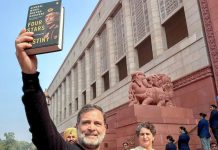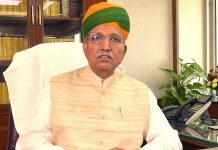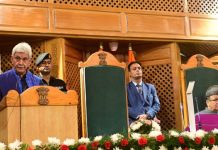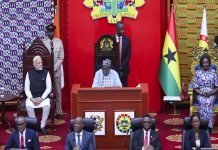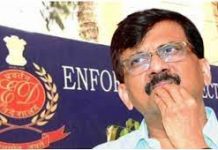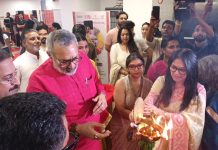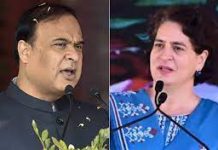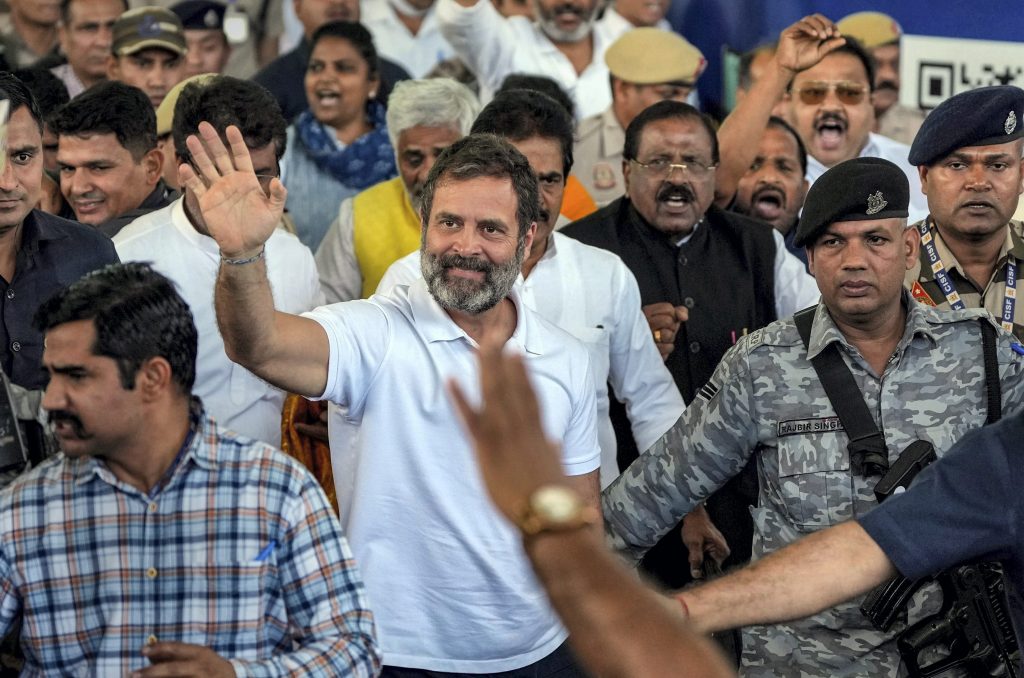
Rahul Gandhi plans to move the Apex Court after his petition seeking stay on the conviction order in defamation case was rejected by the Gujarat HiC. Meanwhile, the party held ‘maun satyagraha’ across the nation on July 12 to protest Rahul’s disqualification, reports Mudit Mathur
After a Sessions Court in Surat (Gujarat) dismissed Congress leader Rahul Gandhi’s appeal against his conviction order passed in criminal defamation case by Metropolitan Magistrate, a single judge of Gujarat High Court also dismissed his petition seeking stay on the conviction order. Congress leader and senior Advocate Abhishek Manu Singhvi called the series of complaints filed against Rahul Gandhi an ‘orchestrated political campaign’ and said that he will move Supreme Court against the orders of the Gujarat High Court.
Now all eyes are set on the Supreme Court to see how it draws balance between free speech and new phenomena of filing cases of criminal defamation against political adversaries with oblique motivated interests. The Constitution of India guarantees free speech and expression to be a fundamental right of every citizen which is not absolute but subject to certain reasonable restrictions; defamation being one of them. The recent political developments slapping criminal defamation cases on prominent politicians and journalists, allegedly as a tool to muzzle dissent, and stymie their bid to raise uncomfortable questions before the political leadership.
Soon after the judgement on July 7, the Congress party reacted that the Gujarat high court’s refusal to stay Rahul Gandhi’s conviction in the Modi surname remark case is disappointing but not unexpected. Singhvi said that the legal jurisprudence from Gujarat High Court and Sessions Court has no parallel in the law and alleged that the government is finding “newer techniques” to throttle the Congress leader’s voice as it is rattled by his plain speaking.
“This is a disappointing and not an unexpected judgment. The jurisprudence found in this judgment is unique and extraordinary. For want of a better word, I will say it has no parallel or precedent in the jurisprudence of the law of defamation,” Singhvi remarked during media interaction.
Singhvi said that a series of complaints filed against the former Congress president, including this one in Gujarat, is an “orchestrated political campaign” to curb free speech, free thought and free expression. Criticising the verdict, he said it has “no precedent in the law of defamation in India anywhere…”
Singhvi also said that Rahul Gandhi will be going to the apex court. However, he refused to give a time frame for the same. “We have full faith in the judiciary and, in particular, in the apex court. We have no doubt that this intersection of arrogance and infallibility shown by the government of the day and the ruling party of the day will be dealt with properly in the Supreme Court,” he added, targeting the BJP.
While dismissing Rahul Gandhi’s plea for seeking a stay on his conviction in the criminal defamation case over his “Modi surname” remark, Justice Hemant Prachchhak made several observations including that “the offence committed by the accused falls in the category of moral turpitude” and that the “need of the hour” is to “have purity in politics”. He observed that the Congress leader is already facing 10 cases across India, adding the order of the lower court was “just, proper and legal” in convicting the Congress leader. The court noted that there is no reasonable ground to stay the conviction.
Gandhi was found guilty of criminal defamation in a complaint filed by Surat West MLA and former Gujarat state minister, Purnesh Modi of the BJP, who objected to Gandhi’s remarks in Kolar on 13 April 2019 — in the run-up to the Lok Sabha elections — “Why do all thieves, be it Nirav Modi, Lalit Modi, or Narendra Modi, have the surname ‘Modi’?” Gandhi was making a rhetorical reference to the fugitive jeweller Nirav Modi and the former cricket administrator Lalit Modi, both of whom face allegations of financial fraud.
H H Verma, metropolitan magistrate, Surat, on March 23, this year sentenced the former Congress president Rahul Gandhi to two years in jail after convicting him under Indian Penal Code (IPC) sections 499 and 500 (criminal defamation). The Congress leader was disqualified from membership of Lok Sabha as the court’s decision triggered Section 8 (3) of The Representation of the People Act, 1951, which states: “A person convicted of any offence and sentenced to imprisonment for not less than two years shall be disqualified from the date of such conviction and shall continue to be disqualified for a further period of six years since his release.”
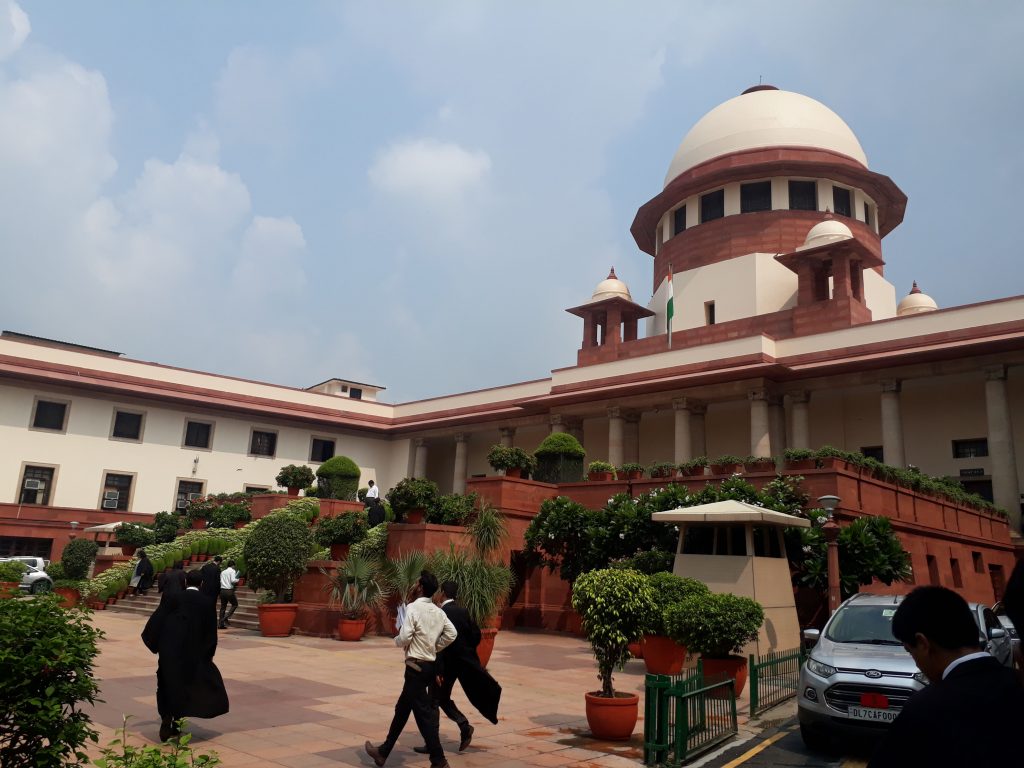
Rahul moved an appeal before the Surat sessions court on April 3 this year. He filed two applications–one for the suspension of the two-year sentence and the other for the suspension of conviction.
Rahul submitted to the sessions court that it seemed “reasonable to argue” that the maximum sentence awarded to him was to “attract the order of disqualification (as an MP)”. Had the second application been allowed, his membership of Lok Sabha would have been restored. But on April 13, Additional Sessions Judge R P Mogera said he would pronounce his order on April 20. On that day, the court rejected his both applications. Rahul then moved the Gujarat High Court in appeal which too turned futile for him.
BJP MP and former Law Minister Ravi Shankar Prasad said, “If Rahul Gandhi feels he has got the license to abuse anyone, then the law will take its course. I outrightly condemn the Congress party’s comment that this is part of a conspiracy to frame Rahul Gandhi leading to his conviction…. He made an irresponsible comment. The OBC community was insulted…the court gave him a chance to apologise…he did not and thereafter he suffered the trial….”
Most of the independent observers feel that the recent trend of weaponizing criminal defamation cases for targeting prominent opposition leaders creates chilling effect on the society at large stopping them from ventilating their views on various actions and policies of the government concerning public at large, thereby hampering democratic atmosphere required for a healthy public discourse in the country– which is a basic feature and constitutional mandate for the survival of a vibrant participatory democracy.
Protesting against the disqualification of party leader Rahul Gandhi from the Parliament the Congress Party called for a ‘maun satyagraha’ across the nation on 12 July. Congress leaders and workers in almost every state capital held a ‘maun satyagraha’ near Mahatma Gandhi statues.
Party general secretary in-charge organisation KC Venugopal said Gandhi has been the strongest and most vocal opponent of the Narendra Modi-led BJP government. “After a hugely successful Bharat Jodo Yatra, Rahul Gandhi delivered a historic address to the Lok Sabha, unearthing the relationship between PM Modi and the Adani Group,” Venugopal said. As a result, the BJP “deployed its dirty tricks” to disqualify him from Parliament, he alleged.
“The Modi government is trying to insult Rahul Gandhi and keep him away from the Parliament. But the Congress workers in the country will unitedly rally behind him to check all such moves,” he said.
The Uttar Pradesh congress party staged a day-long silent protest at Shaheed Smarak in Lucknow where thousands of party workers and leaders from all corners of the state assembled to protest against the disqualification of Rahul Gandhi who was allegedly targeted by BJP and RSS workers filing criminal defamation cases against him all over the . It was led by state president Brij Lal Khabri, CLP leader Aradhna Mishra Mona and others.
In Uttrakhand , “Silent Satyagraha” of Congress workers was held under the leadership of President, Uttarakhand Pradesh Congress Committee, Karan Mahara and Leader of the Opposition, Yashpal Arya before the statue of Mahatma Gandhi against the ‘dictatorship’ of Modi government. Prominent Congressmen participated there.
In Gujarat, Congress workers under the leadership of state congress president and MP Shaktisinh Gohil participated in ‘silent satyagraha’ against the high-handedness of the Modi government in Ahmedabad. “Today, the anti-democratic face of the Modi government has come to the fore in front of the whole country. Conspiracy to expel Rahul Gandhi from the Parliament is the proof of this thinking of the government,” Gohil tweeted.
In Kerala, from where Rahul lost membership of Wayanad Lok Sabha constituency, several Congress leaders and party workers observed ‘maun satyagraha’ (silent protest) in the state capital Thiruvananthapuram to express solidarity with Rahul Gandhi, who, according to them, was “erroneously” convicted in a defamation case and disqualified from Lok Sabha. An array of senior leaders including MLAs, MPs and former ministers gathered in front of the statue of Mahatma Gandhi at Gandhi Park, located in the heart of the capital city, to take part in the protest that would continue till the evening.
Kerala PCC chief K Sudhakaran, Leader of Opposition in the Assembly, V D Satheesan, MPs including Kodikunnil Suresh, Rajmohan Unnithan and K Muraleedharan and presidents of various District Congress Committees and so on were among those who took part in the silent protest. Before the beginning of the ‘maun satyagraha’, Suresh, who is also the working president of the KPCC, alleged that the Centre under Prime Minister Narendra Modi and the ruling BJP were trying to keep Gandhi away from Parliament.
In Panaji, Goa, ‘Silent Satyagraha’ was observed in solidarity of Rahul Gandhi under the leadership of Goa PCC President Amit Patkar, LoP in the Goa Legislative Assembly, Yuri Alemao, MLA Carlos Álvares Ferreira, Altone D’Costa and MP Manickam Tagore. “Rahul Gandhi is being targeted for exposing the Modani Nexus.” Our ground workers in Goa stand united to defy the BJP’s attempts to silence him and uphold the slogan ‘Daro Mat’!
“The truth cannot be defeated,” tweeted Maharashtra Congress president Nana Patole staging ‘Maun Satyagraha’ in front of Mahatma Gandhi’s statue near Mantralaya in Mumbai along with MRCC PresidentProf. Varsha Eknath Gaikwad and other leaders from Maharashtra.TheCongress workers peacefully protested against the disqualification of senior Congress leader. The Congress functionaries claimed that all democratic institutions are working under the pressure of the BJP-led central government.“First, the defamation charge was not appropriate. Second, the punishment of two-year imprisonment is the wildest thing anyone can imagine. Moreover, the speed at which this was done while the matter is still under legal scrutiny shows how much the BJP fears our leader,” said Bajirao Khade, a Congress leader.
Similar protests were held in Goa, Jharkhand, Mizoram, Assam, Tripura, Telangana, Pudicharry etc.

